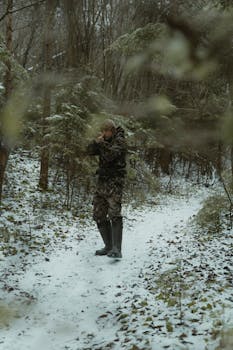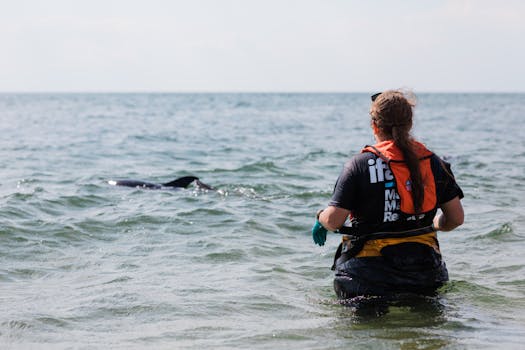Hunting is an age-old practice that has evolved with technology and regulations. Whether you’re a novice or a seasoned hunter, creating effective hunting materials enhances your experience and success. From choosing the right gear to understanding local wildlife, being prepared can make all the difference.
As the hunting season approaches, having the right materials can enhance not just your safety, but also your effectiveness in the field. This article will guide you through the steps and best practices for creating your own hunting materials. From gear to bait, every element counts.
Additionally, understanding the environment and the wildlife you are targeting is crucial. This will help you craft strategies and materials that increase your chances of success. Let’s delve into the essentials of creating hunting materials.
Understanding Your Hunting Goals
Before you start gathering materials, define your hunting goals. Are you hunting for sport, food, or management purposes? Each objective dictates your approach, materials, and gear.
For sport, focus on the thrill and skill of the hunt, emphasizing accurate tools and techniques. In contrast, food hunting prioritizes efficiency and humane practices. Management hunting aims at ecological benefits.
Clarifying your intentions allows for appropriate planning and resource allocation. Hunting responsibly contributes to sustainable practices and preserves wildlife populations. Set practical objectives to shape your strategies.
Assess local regulations as they can directly influence your goals. Complying with the law ensures your hunt is ethical and sustainable. Ignorance about regulations can lead to severe consequences.
Finally, you should consider the type of game you wish to hunt. Different animals require different techniques and materials. Researching your target enhances preparedness and success rates.
Selecting the Right Gear
The gear you choose is vital for both safety and effectiveness. Invest in high-quality equipment suited to your hunting style and target species. This includes clothing, weapons, and accessories.
Start with clothing made for the specific climate and terrain. Wear layers to adapt to changing conditions and ensure you remain comfortable and focused during your hunt.
Next, focus on selecting the appropriate weapon; shotgun, rifle, bow, or crossbow. Each option has its advantages and disadvantages based on your chosen game and personal preference.
Furthermore, always carry essential accessories, such as a hunting knife, binoculars, and first aid kit. These items can prove indispensable in various situations, enhancing your overall experience.
Lastly, consider purchasing a quality backpack. A durable pack allows for easy transport of equipment and provides necessary storage while keeping your hands free for other tasks.
Creating Effective Bait and Lures
Bait and lures play a significant role in attracting game. Understanding the dietary habits of your target animals helps in crafting effective bait. Different species respond to various scents and tastes.
For example, if you are hunting deer, corn or apples may serve as effective bait. In contrast, for predators like coyotes, consider using scents that mimic distressed animals.
Experimenting with homemade lures can be beneficial. Popular choices include mixing natural ingredients like fruit sugar or commercial attractants to enhance scent profiles.
Utilizing camouflage and natural materials to cover your bait increases effectiveness. Make it blend into the environment, reducing the chances that your target becomes suspicious.
Always check local regulations regarding baiting. Some areas have restrictions to preserve animal health and local ecosystems. Compliance ensures a responsible approach to hunting.
Understanding Local Wildlife Habits
Knowledge of local wildlife habits is fundamental to successful hunting. Understanding the behavior of your target species aids in timing and positioning during your hunt.
Research seasonal patterns to determine when animals are most active. Many hunt during certain times of day or specific weather conditions, impacting your strategy.
Observe tracks and signs to identify animals within your area. Fresh tracks, droppings, and feeding signs reveal a lot about wildlife presence and movement.
Attend local workshops or forums to share insights and learn from more experienced hunters. Engaging with the hunting community enhances your understanding and skills.
Utilizing trail cameras can also prove a valuable tactic, allowing you to monitor wildlife activity without intrusion. Analyze the data collected to refine your approach further.
Safety First: Preparing for Your Hunt
Safety should always be a top priority. Before any hunt, familiarize yourself with essential safety practices and equip yourself with necessary safety gear. This includes wearing hunter orange and using reliable gear.
Understand the principles of firearm safety, such as keeping the muzzle pointed in a safe direction, keeping your finger off the trigger, and always ensuring your target is clearly identified.
Additionally, always hunt with a buddy when possible. Having companions enhances safety through shared vigilance and assistance in case of emergencies.
Inform someone about your hunting plans, including where you will be and the expected return time. This serves as a precaution and increases accountability during your outing.
Carrying a first aid kit and learning basic first aid practices is indispensable. Accidents can happen, and being prepared ensures responsiveness and care.
Documenting Your Hunting Experience
Documentation can enhance your hunting experience and contribute to improvements in future hunts. Keeping a hunting journal offers a way to track successes and challenges.
Record details such as weather conditions, equipment used, time of day, and game sightings. Analyzing this information helps develop better strategies and find patterns over seasons.
Photography is another enjoyable way to document your experiences. Capturing moments can add to the enjoyment of your hunt, allowing for lasting memories that you can revisit.
Sharing your experiences with friends or social media can build camaraderie and inspire others. However, always maintain respect for the wildlife and ethical hunting practices.
Finally, consider exploring local hunting contests or organizations. Engaging with such groups offers new learning opportunities and a chance to connect with fellow hunters.
Final Thoughts and Conclusion
Creating your own hunting materials encompasses planning, preparation, and continual learning. By approaching each aspect with care and diligence, your success will likely increase.
Prioritize understanding your goals, selecting the right gear, and crafting effective bait. Furthermore, ensure safety and document your experiences as this enriches your knowledge.
Regularly connecting with the hunting community helps refine your skills and ensures sustainable practices. Responsible hunting allows not only for personal enjoyment but also for conservation of wildlife.
Ultimately, each hunting adventure is a mix of respect for nature and personal challenge. Embrace these principles, and enjoy your time afield.
With efficient preparation and a positive attitude, your hunting experience will be not only successful but also fulfilling. Happy hunting!


